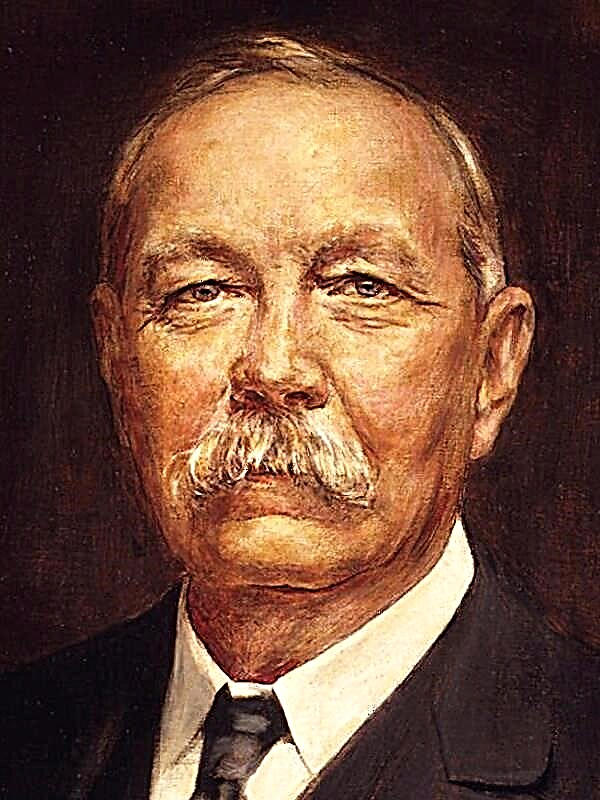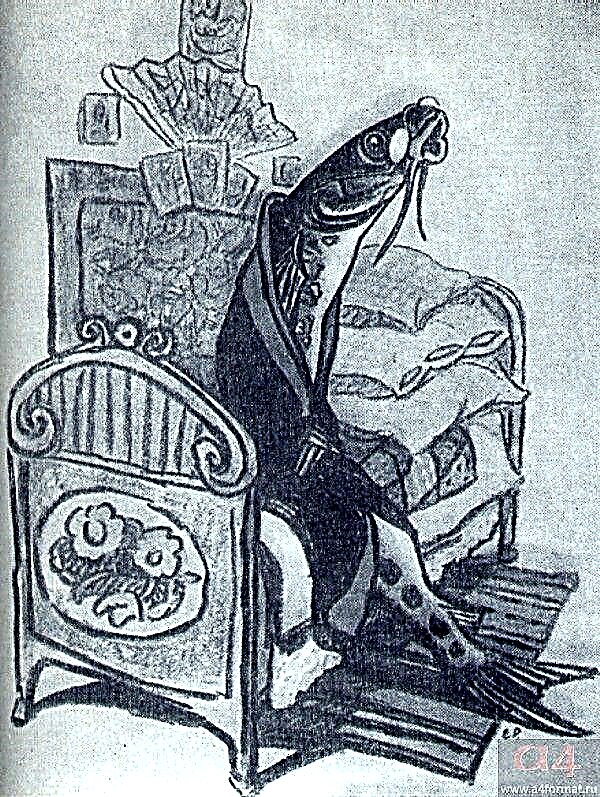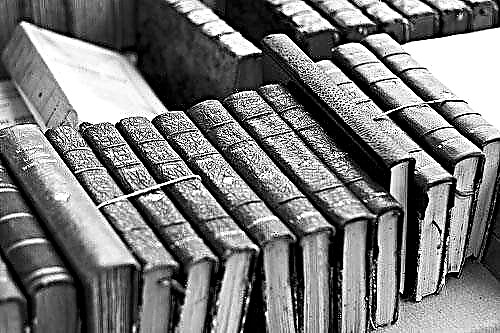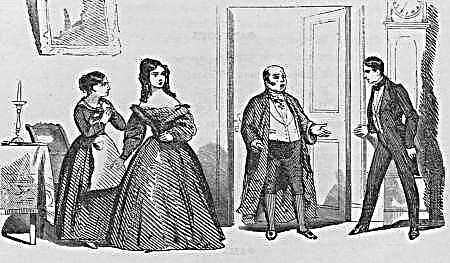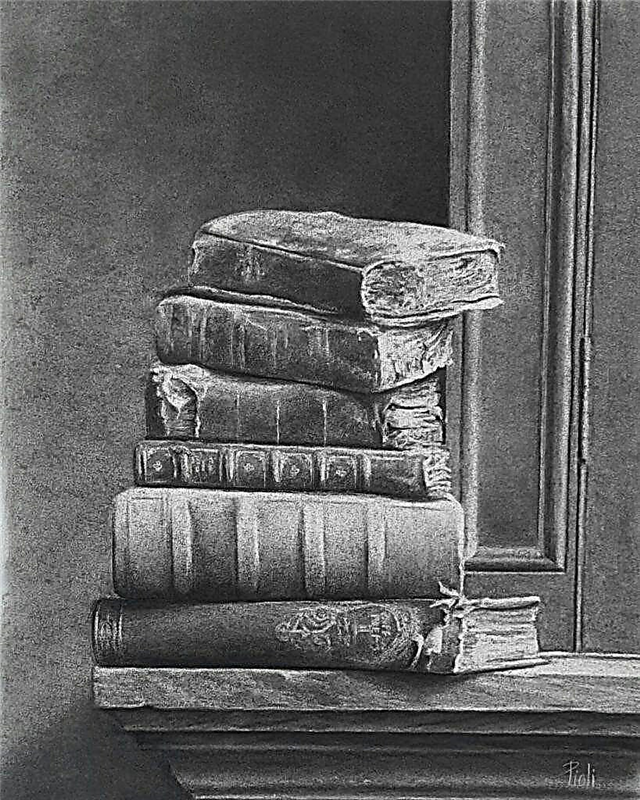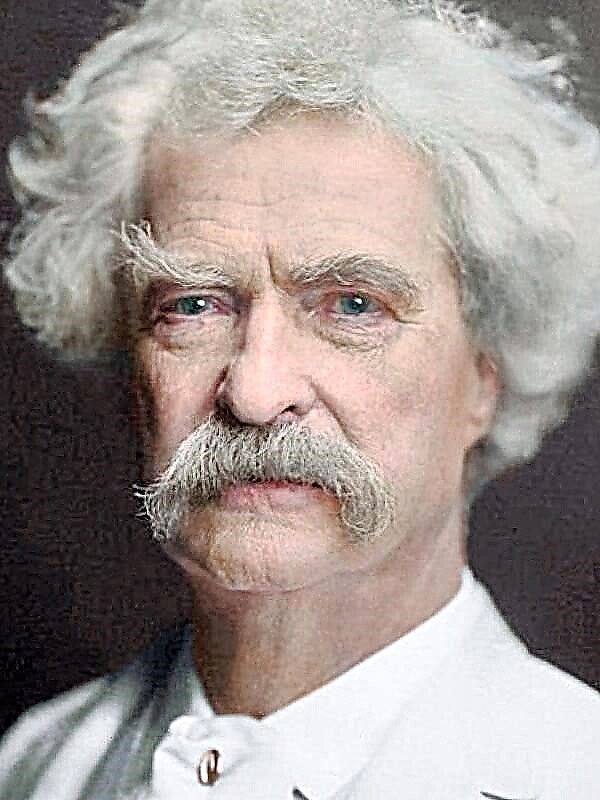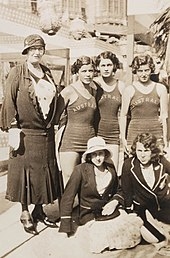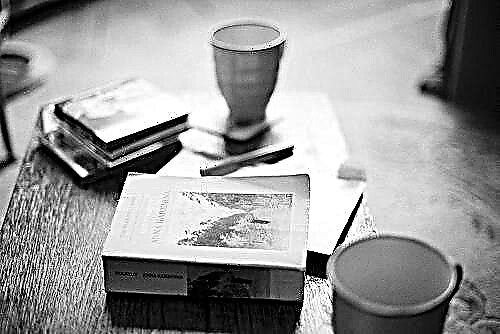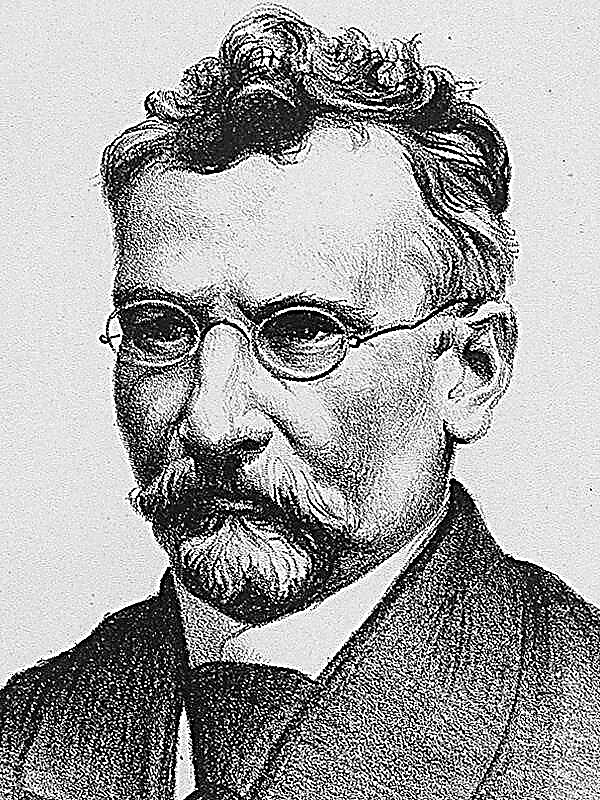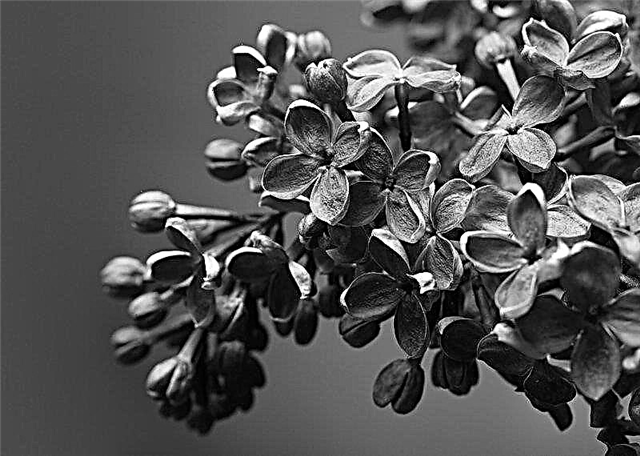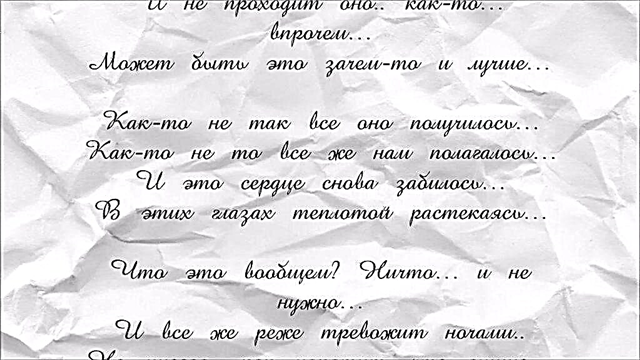Angel jabrail
The Bostan plane was blown up by terrorists. Two Indian immigrants drop out of it and escape. Wonderful transmutations occur with them when they fly through clouds and a column of light. Unharmed and changed, he throws them ashore.
Indian actors Farishta and Chamcha are immigrants. Chamcha has long lived in England, Farishta - recently. The first is a little-known actor in an English television show, the second is a Bollywood superstar playing Hindu gods.
Since childhood, Dzhabrail Farishta knew how to like, and therefore made his way to the cinema. Having succeeded, became a playboy, he believed that everything was allowed to him, everyone adored him, was frivolous and selfish. He did not like Rekha's long-term mistress, casually accepting her sincere feeling. At forty, he fell ill with a variety of hemophilia, almost died, all of India prayed for him. Suddenly he got better. Having recovered, he, a Muslim, lost faith. At the time of the spiritual crisis, Farishta met the famous climber, Everest conqueror Hallelujah Cone. They fell in love with each other. Farishta abandoned Rekha and disappeared from Bombay. The inconsolable Rekha, unable to endure separation from her lover, killed her children and herself. For unbelief, Jabrail was punished with mental illness and strange dreams.
Saladin Chamcha is an English actor. He is a snob, from a wealthy family, studied in England, does not like India and dreams of becoming an Englishman. Conflicts with his father for many years, whom he loves and hates at the same time. Envious of his antique lamp. Chamcha is an atheist. For a long time he achieved success in England (he is a voice imitator), married Pamela Lovelas for love, almost without knowing her, survived the family crisis.
The actor returns from Bombay from a tour where he had an affair with his childhood friend Zini Wakil. She fell in love with him and decided to return it to her homeland. Chamcha tried to make peace with his father after a long quarrel, but in vain.
Chamcha meets Farishta when terrorists land a plane flying to England in the Arabian desert for negotiations. Over the long days of captivity, the actors got closer. Farishta tells Chamche about nightmares, where he turns into the archangel Jabrail, who, in turn, dreams about actor Farishta.
Mahund
Archangel Jabrail monitors the merchant Mahund, a resident of the ancient Arab city of Jahil. He is not like other townspeople: he worships a single god, often retires in the mountains, surrounded by fellow believers.
The ruler (grandee) of Jahil Abu Simbel meets with the famous poet Baal in the House of Black Stone (Kaaba), where there are statues of 360 pagan gods led by the goddess Al-Lat, and orders him satirical verses against Mahund. Grandi fears a secretive businessman, because he preaches among monastic Gentiles Jahilis unprecedented monotheism.
Mahund tells friends that Grandi offered him a deal: recognize as equal to his one God the three pagan goddesses led by Al-Lat, and then the monotheists will not be persecuted. They discourage the merchant, and Mahund, climbing the mountain, asks the archangel for advice. Appearing in the image of Farishta, Jabrail inspires him in a dream. At a poets contest during the fair, being in a religious trance, the merchant pronounces “Satanic verses”: he equates three pagan goddesses with one God (which is blasphemy).
On a festive night, monotheists accidentally kill Grandi in a drunken brawl. The authorities pursue them, forcing them to leave the city. Mahund again ascends the mountain to consult with the archangel, they fight, and the defeated hears a revelation in a dream: his verses were not divine, but diabolical. Rejoicing that he did not offend the one God, the merchant returns to the sanctuary.He proclaims that God is one and great and that no pagan goddesses are equal to him. Monotheists leave Jahil.
Eleoen Deohen
Having fallen on the seashore of England, the heroes transmute: the careless Farishta turns into an angel with a halo, the esthetician and snob Chamcha becomes a satyr with horns, hooves and putrid breath.
They are found by the old, unsociable Rose Diamand, who had long lived waiting for a miracle. Satire Chamchu is arrested by the police, and Rosa and Jabrail do not protect him, which he cannot forgive to a friend later.
Jabrail and an old woman are attached to each other. Having told the angel the story of her life and love, and as if having been in the past, Rose dies happy. Farishta miraculously sees her past, which gives him physical torment.
The police mocked the arrested satyr Chamcha and sent him to a mental hospital, from where he was fleeing.
Chamchi’s wife - Pamela - does not suffer after her husband’s death: she stopped loving him, realizing that they are strangers. Having become a widow, a woman immediately becomes the mistress of Nervin Joshi - her husband’s best friend. They fall in love with each other. The lovers are stunned and crushed by the return home of the deceased Chamchi-satyr.
Farishta arrives in London and realizes that he is going crazy, feeling like an angel. He takes it as God's revenge for unbelief. The ghost of a former suicide mistress Rekha on a carpeted plane haunts him and torments him.
Farishta's beloved - mountaineering star Hallelujah Cone - often recalls the story of her difficult conquest of Everest. She has an unusual appearance, she is an albino with white transparent skin. A woman suffers from leg pain, which she courageously endures. The deceased lover magically falls at her feet in a London park.
Aisha
Farishta in the form of an archangel is watching the Imam - an exile from the East, a London immigrant. The Imam was expelled from her homeland - the country of Dash - Empress Aisha. He hates England, calls on the archangel Dzhabrail and orders to transfer himself to Dash. There is a popular uprising with many innocent victims, organized by the imam against the empress. The imam orders Farishta to fight Aisha, and the empress in the form of the pagan goddess Al-Lat is defeated by the archangel. The imam is reaping the fruits of revolution.
Farishta in her dreams sees the poor Indian Muslim village of Titlipur, the landowner Mirzu Said, his beloved wife Mishal. A poor seer, an epileptic girl Aisha, surrounded by butterflies and eating them, is rubbed into their happy family. Having predicted Mishala’s breast cancer, Aisha proclaims herself to be the prophetess of the will of the angel Jabrail, whom she meets, and convinces the villagers to make a walking hajj to Mecca. Atheist Mirza Said discourages residents and his wife from such stupidity, but they blindly believe the "butterfly witch." The wife convinces Said to go with them.
The city is visible but invisible
Nervin Joshi leads Chamchu to the Shaandaar Cafe, which contains Indian immigrants - the Sufyan family. The husband and two teenage daughters warmly welcome the satyr and settle in the attic. Only the wife is not happy with such a guest.
Chamcha is tormented by unanswered questions: why is he turned into a satire, does Farishta have anything to do with it. He is angry that he is being helped by the Indians, from whom he distanced himself for a long time, considering himself an Englishman. He loses his job and learns about the appearance of the resurrected "star" of Jabrail in London and his future shootings in the film about the angel.
Pamela Chamcha inexplicably turns gray and becomes pregnant by Nervin Joshi.
The Sufyan sisters made friends with Chamcha; they tell him about the interethnic situation in their area of Littlebrick: white gangs terrorize immigrants, they create self-defense units.
Rumors of a devil satire seep into local society, causing a fashion for Satanism. Chamchu is horrified, it inexplicably increases.
A scandal is being played out in the Sufyan family: the minor Mishala leaves with her lover Hanif from home, the girl’s mother accuses the satyr Chamchu of this. Angry, monstrously swollen, he goes to look for Farishta.Mishal and Hanif leave him overnight in an empty nightclub, where he concentrates on his hatred of his rival angel. After spending a terrible night, experiencing inhuman torment and dilapidating the room, Chamcha falls asleep and wakes up a person.
Farishta and Hallelujah Cone enjoy love, they are inseparable. Both are in love for the first time, and the girl does not listen to the warnings of her mother. The story of the unfortunate Cone family is told. Alli has been haunted by disturbing visions from the time of the conquest of Everest. The girl and Farishta hide their hallucinations from each other. The hero notes that his dreams negatively affect reality.
The climber becomes a media star, a business woman, but experiences loneliness, like other characters in the novel. She imagines the inevitable speedy death predicted by ghosts from the peak. The relationship of lovers deteriorates, misunderstanding and irritation come. Dzhabraila visits the vision of God: he orders him to leave Alli to fulfill the highest mission. The girl puts her lover in a psychiatric clinic because of his dreams and the related “mental illness”: he scares her with unreasonable jealousy.
Film producers find the patient Farishta and offer a loud return to the cinema world. On the show in his honor, he has an internal crisis, and he chooses the path of an angel. Prophetic dreams come true in reality: the actor feels himself the arbiter of the fate of the world. He rises above the crowd and disappears.
Farishta angel dreams of great accomplishments. Finally, he recalls the name of the devil-enemy Chamchi and unsuccessfully tries to do good in the streets of London. The hero is again transferred to Alli's doorstep and plunges into a mystical dream about an aged prophet.
Return to Jahil
In Jahill, 25 years later, the aged poet Baal fearfully awaits the victorious return of the army of Mahund, the prophet of the new religion. Old Grandi Abu Simbel and his wife are preparing to defend the besieged city.
A frustrated companion of Mahund complains of harsh religious laws imposed by the prophet according to the revelations of an angel. The new religion has many rules, they are difficult to follow. Humility is the main principle of life, inspired by the angel Mahundu.
Grandi Abu Simbel accepts the faith of the prophet and surrenders the city. He promises safety to all converts. The townspeople prefer to surrender and survive. Having captured the city, Mahund orders to destroy the statues of pagan gods in the Kaaba. The pagan goddesses, led by Al-Lat, were destroyed; in the square, the prophet massively turns the townspeople into true faith.
The old enemy of the prophet, Baal, is hiding in a brothel under the guise of a eunuch. After the death of the old goddesses, he becomes an atheist. No longer afraid of death, he decides to play a trick on the prophet and the laws of Submission. Allowing believers to have four wives, and having twelve himself, Mahund confuses the men of Jahilla. Baal invites twelve prostitutes to be called by the names of the wives of Mahund during sexual games. Customers are delighted, the brothel's income is growing, the strictest secret is respected. Going further, prostitutes declare Baal their husband, thus parody reincarnating in the "first" family of the country. The happy poet is again visited by creative inspiration.
The new authorities close the stash, arrested sex workers. In front of the prison windows, the poet reads madrigals to them. Mahund judges Baal and condemns him to death with prostitutes. The prophet does not forgive ridicule of his faith and family. Soon the prophet falls ill and dies. His death is served as revenge on the annihilated goddesses of Jahilla.
Archangel Azrael
A lot of suffering and reborn Chamcha returns home. He stopped loving his wife, stopped hating and blaming Jabrail for everything. His mentality is changing: he becomes interested in the life of fellow immigrants. Gradually, he restores his former life, peacefully coexists with his ex-wife and her lover, and dreams of Zini Wakil, a Bombay friend.
Chamcha participates in rallies of immigrants against racism.Suddenly he sees the ghost of the archangel Azrael (death) and foresees his own death. In a panic wandering the streets, he sees the disastrous signs of the coming of the archangel Jabrail, everything reminds him of Farisht-angel. Chamcha faces a moral choice and chooses the path of a person, unlike a friend.
Finally, three heroes meet at a London bohemian party. Dzhabrail insincerely glad Saladin, he feels hostility towards him and Alli, at the same time wanting a girl. Movie star under the influence of psychotropic drugs: he treats paranoid schizophrenia - a split personality, he has seizures of insanity.
Alli asks Chamcha, as a friend, to help take care of sick Jabrail. Saladin sees the girl’s care for the patient and is imbued with sympathy and pity for her.
Envious of Farishte and wishing his lover, Chamcha concocts revenge and implements it, inciting the jealousy of the actor. Using his talent as an imitator, he calls Farishte and Alli on the phone, inventing obscenities about a girl. The actor, believing in the betrayal of his beloved, destroys her apartment and disappears.
Spitbrick has interracial unrest. During a fire, Pamela and Nervin die at the hands of the rioters.
Farishta with the horn of Azrael (death) roams the area, doubting and trying to understand the will of God. Accidentally meeting the fleeing Chamchu near the Shaandaar cafe, Jabrail is seeing and understands who imitated unfamiliar telephone voices and separated him from Allie. He sets fire to a cafe. Chamcha is trying to save the spouses of Sufyan and almost burns with them. In the archangel Farishte, humanity triumphs, and, having once again become a man, he saves the enemy by carrying him out of the fire.
Division of the Arabian Sea
The procession, led by the “butterfly witch”, the prophetess Aisha, goes to the Arabian Sea through the country. The girl’s gaze miraculously affects everyone she meets. A cloud of butterflies protects travelers from unbearable heat and covers the body of a girl. Nobody can interfere with pilgrims, stop, dissuade. Suffering Mirza Said is trying in vain to wrest a cancer-dying wife from general insanity.
Pilgrims begin to hurt and die on the way, they are quickly buried. Gradually, doubt is engulfing some, a group of opponents of the Hajj is formed. Doubters go after the procession in Mirza Said’s car.
The Muslim fanatical procession is being bullied and attacked by Indians, authorities and police. Opponents of the Hajj repeatedly dissuade the villagers by reciting verses, according to Aisha, "satanic." Mishal weakens, but becomes the true leader of the Hajj, supporting and cheering the pilgrims. At the procession, the media begin to PR, but no one understands its true reasons, and Aisha does not explain anything, referring to the will of the archangel. The country is covered in mystical hysteria.
In a Hindu mining village, local residents decide to stop the hajj and kill the pilgrims. Aisha bravely rushes directly at the erected barricades, and a miracle happens: a terrible rain is washing away rubble and hooligans, and in a local mine the workers are being blown to death. Clouds of butterflies save pilgrims by enveloping them and pulling them out of the water. After a miracle, the attitude towards pilgrimage changes: the authorities begin to help, the aggression of the masses decreases. Mishal, losing strength, breaks with her husband.
On the way, in the mosque, a crowd of fanatics, on the orders of Aisha, stone the abandoned baby. Pilgrims are horrified by their leader, but she persuades them to complete the hajj.
At the resort beach, pilgrims surrounded by butterflies see in the sky a huge figure of the archangel Jabrail, in religious ecstasy they go to the sea and hide under water. Those trying to save them see how the waters of the sea parted before them.
Titlipur village was empty due to drought. Mirza Said dies with thoughts of her beloved wife, Aisha and the separation of the Arabian Sea.
Wonderful Lamp
After a heart attack, Chamcha goes to India to say goodbye to his dying father. He is full of remorse over the parent and suffering Farishta.From the media, he learns that the movie star’s affairs are bad, and that India has a turbulent political and interreligious environment.
The son takes care of his father dying of cancer and, finally, can show him the love that has been accumulating in him for many years. The father has preserved the old oil lamp - the subject of his son’s childhood dreams. After the funeral of his father, Saladin rubs the “magic” lamp and the beloved Zini Vakil appears.
In Bombay, they discuss the failures of the former movie star Farishta, who was seriously ill. In a place with Alli Cone, a group of climbers arrives in the city to climb the next peak. Chamcha foresees a terrible ending for the three of them.
Saladin, Zini, their Indian friends are participating in a peaceful demonstration against violence and fanaticism, they are happy. From the media, Chamcha learns that Alli crashed after falling from the roof of the house of Farishta, and her friend was killed there. Jabrail, a suspect and wanted by the police, comes to Chamcha and talks about his unbearable mental pain. He confesses to two murders and shoots.
Saladin stays in India with his beloved woman and tries to build a normal life.

